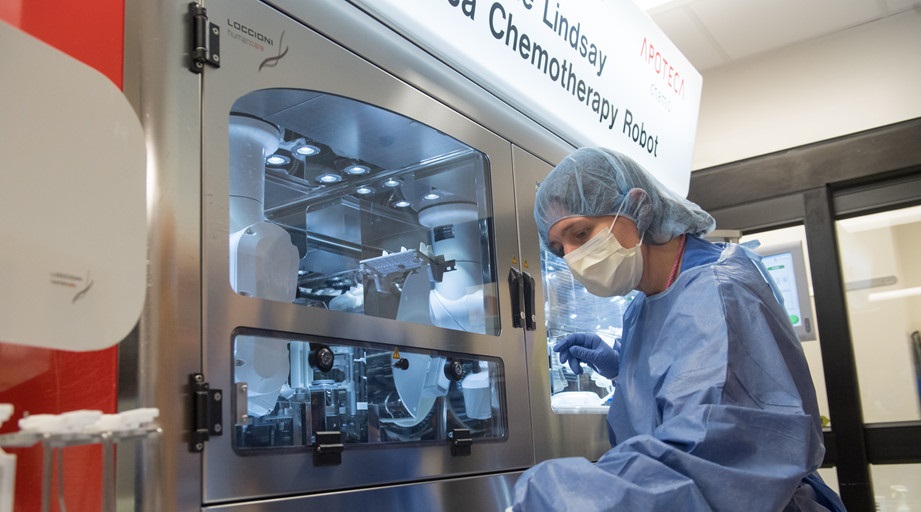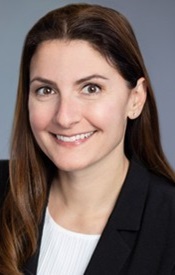
The Dec. 10 Midyear session 2024 ASHP National Survey of Sterile Compounding in Hospital Settings: Key Findings provides a snapshot of compliance successes and gaps during the months after US Pharmacopeia’s latest compounding standards went into effect.

The survey was conducted this past June and July. Representatives from a total of 76 hospitals responded to questions on compounding oversight, beyond-use dating, compounding operations, environmental monitoring, hazardous drug handling, and other topics related to the revised standards.
“Our hope is that sharing these preliminary survey results will help colleagues in the audience with their own compounding compliance journey and provide practical insights on how others have implemented the compounding standards,” said session presenter Jackie Jaskowiak, inpatient pharmacist specialist at UC San Diego Health.
Jaskowiak will be joined by co-presenters Adam Jones of University of Iowa Health Care and Shannon Hendricks of Premier Health Partners. All three presenters serve on the ASHP Section of Inpatient Care Practitioners advisory group on compounding practice, which developed the survey.
Jaskowiak spoke with the ASHP News Center in advance of the meeting. An edited transcript of the conversation follows.
ASHP: This is your first-ever Midyear presentation. Are you looking forward to it?
Jaskowiak: To say I’m excited is an understatement! It is an honor for me to present alongside Dr. Hendricks and Dr. Jones.
Why should Midyear attendees come to this session?
Jaskowiak: It’s not always easy to implement the USP standards. So we’re trying to present the material from the survey in a way that’s practical for both managers and frontline compounders.
Our presentation focuses on sterile compounding and hospital practice. But we’re also including information for colleagues that work with investigational drugs. We’ll share resources that pharmacy departments can consult for USP <797> and USP <800> compliance, such as ASHP’s compounding resource center and the ASHP compounding assessment center, just to name a few.
We’ll also describe current practices and the impact of recent changes to USP sterile compounding standards. And we’ll identify gaps between current practice and USP sterile compounding standards and provide a practical approach for implementing the standards.
Did the survey reveal any major compliance gaps?
Jaskowiak: Shannon Hendricks will go over documentation for training competency and also education for pharmacy personnel — specifically, how those compounders and pharmacists that provide direct oversight are being trained.
One of the interesting survey results was when we asked, “How is your department conducting initial knowledge assessments for pharmacy compounders?” Electronic exams are the most common method. But there were some respondents that are not conducting these knowledge assessments for compounders at all, and that doesn’t meet the minimum standards. So we’re going to talk about those compliance gaps in the review of the standards and then also provide best practices for your implementation.
Were there any compliance areas that you thought might be a struggle, but the survey shows that’s not the case?
Jaskowiak: The survey did ask how confident people were in their program’s overall compliance with the current USP chapter standards. We also asked if the organization is able to undergo a regulatory review without corrective action or findings.
A key takeaway from our session is that the majority of survey respondents do report compliance or confidence in compliance with USP <797> and USP <800>. The chapters have been official since November of 2023, so we’re moving in a very positive direction. And that’s really great to know.
Did any of the survey responses intrigue you?
Jaskowiak: The USP compounding chapters require that each compounding facility must designate one or more individuals referred to as the designated person or persons. They are literally responsible and accountable for the performance and operation of both the facility and the personnel that are involved with compounding sterile preparations.
One of our respondents said that one of their designated persons is a microbiologist. That respondent’s hospital site is essentially taking a multidisciplinary approach to compliance. So that was interesting to see.
Tell us a little more about how the session will cover USP <800>.
Jaskowiak: We’re going to talk about hazardous drug classification and take a deep dive into how colleagues are utilizing closed-system transfer devices for both compounding and administration. And then also review some preliminary results regarding medical surveillance programs and hazardous drug residue sampling.
I hope it helps the attendees to know what other sites are doing with hazardous drugs. Right now there are a lot of gray areas, especially when it comes to investigational drugs. We have cellular therapies and gene therapies now, and more coming along, and hospitals have to address how they’re going to handle those drugs. It’s really an exciting time to be involved with compounding.







